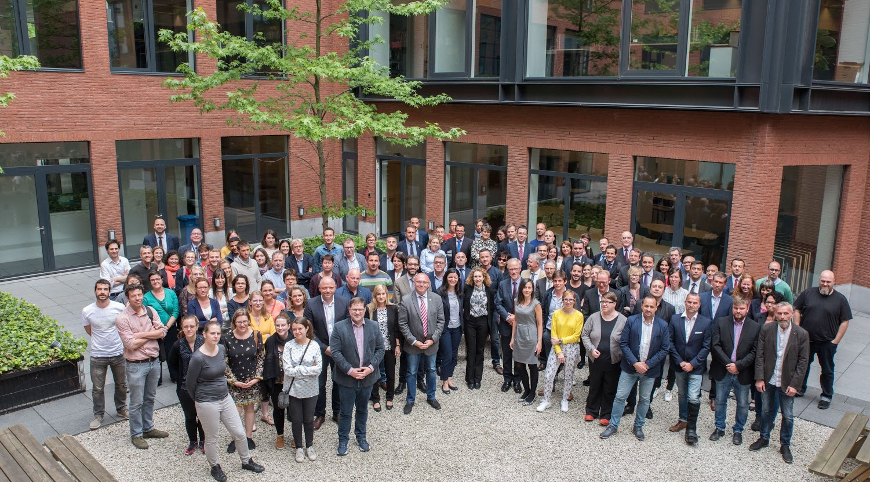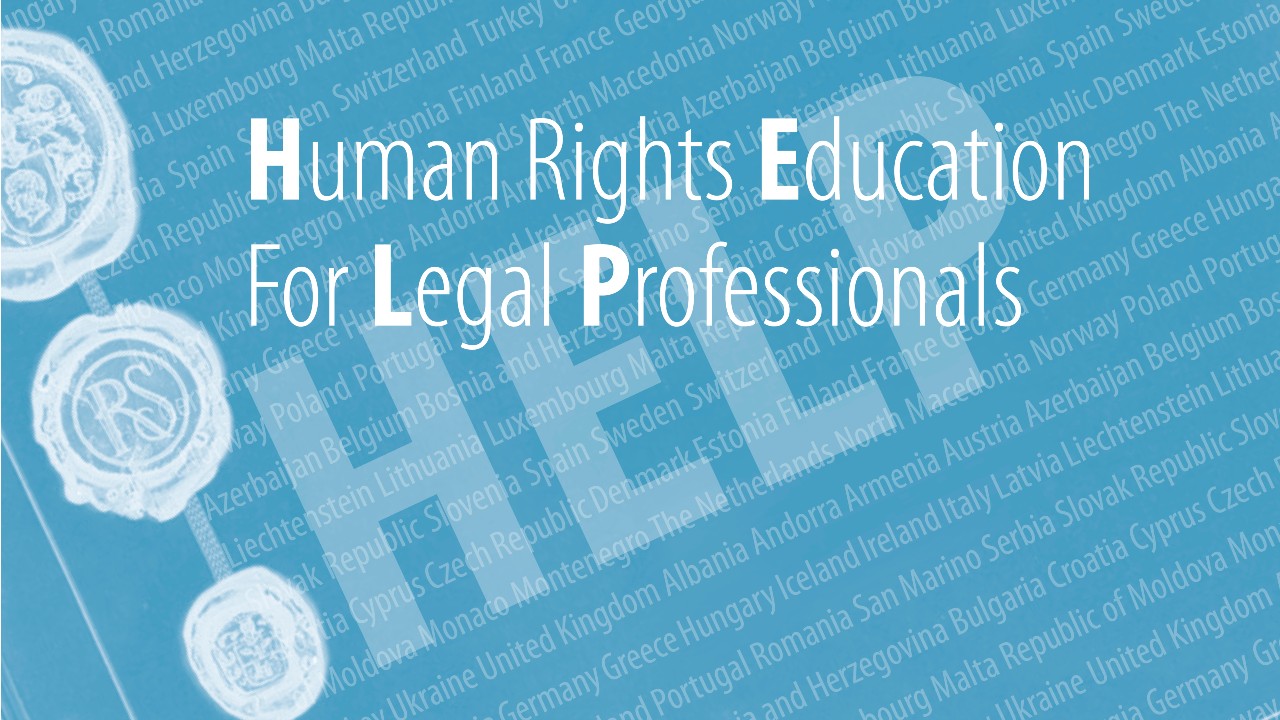Over 100 prison and probation staff from Austria, Belgium and Spain attended the cross-border launch of the European Union-Council of Europe HELP Course on Radicalisation Prevention in Brussels on 27 and 28 May 2019.
The event, held in French, started with speeches from representatives of Belgian prison and probation institutions: Rudy Van De Voorde, Directeur Général, Direction Générale des Etablissements Pénitentiaires and Annie Devos, Administratrice Générale de l'Administration Générale des Maisons de Justice. The latter stressed the intense work of the Council of Europe in the areas of counter-terrorism and radicalisation prevention.
Humbert de Biolley, Deputy Head Brussels Office of the Council of Europe, welcomed participants and highlighted the importance of the European Union-Council of Europe partnership in this area. , He also referred to the crucial role of the Council of Europe HELP Programme in training the judiciary and law enforcement agencies, including probation and prison leadership and staff, on these matters, to provide a holistic and coherent response to radicalisation and to help preventing it.
Regina Hernández-Escrivá, from the European Commission-DG Justice, talked about the relevance of projects like this one, which tackle a priority issue for the European Commission, and its successful implementation by the Council of Europe to date.
Eva Pastrana, Head of the HELP Unit, provided a detailed explanation of the Human Rights Education for Legal Professionals (HELP) Programme of the Council of Europe and its e-learning platform containing more than 30 online courses, while Eva Massa, project Coordinator, presented the joint European Union-Council of Europe HELP Project “Radicalisation Prevention”, giving specific information on the HELP course, so participants could familiarise themselves with it.
On the second day, Raluca Ivan, from Criminal Law Cooperation Unit (CLCU) of the Council of Europe presented the work of the CLCU in terms of projects in Western Balkans and Eastern Partnership countries, their bilateral and multilateral activities, and the advisory role in Norway Grants funded programmes. She presented as well the main principles set up in the Council of Europe Guidelines and Handbook for prison and probation services regarding radicalisation and violent extremism, and provided some examples of training of prison staff in order to develop their skills and knowledge on human rights of detained and sentenced persons, dynamic security etc.. She focused on the Council of Europe projects in the Western Balkans addressing radicalisation and violent extremism in prisons (e.g. in Bosnia and Herzegovina), as well as the upcoming regional project under second phase of the European Union-Council of Europe Horizontal Facility for the Western Balkans and Turkey - on the same topic, that will use HELP methodology and course on Radicalisation Prevention.
Hasan Mutaf, lawyer at the European Court of Human Rights, talked about the jurisprudence of the European Court of Human Rights in the area of counter-terrorism, analysing the specific rights and freedoms affected by it. He focused particularly on case-law related to life in prison, in particular on activities, isolation, correspondence, family visits, as well as the case-law on specific measures outside prison, such as the freedom of movement, information that was very practical and relevant to the audience.
Participants were also introduced to the tutors who will accompany them in the implementation of the course for the next three months, namely: Sybille Genot , Attaché, Directeur, SPF Justice, Direction Générale des Etablissements Pénitentiaires DGEPI, Centre de Formation du Personnel Pénitentiaire, Belgium, Jonathan Péromet, Directeur adjoint, Administration Générale des Maisons de Justice, Maison de Justice de Bruxelles, Martin Hoffmann, Basic Training, Academic Coach, Organisational Advisor and Human Resources Developer, Austria and Carlos Fernández, General Secretary of Penitentiary Institutions, Spain. Each of them provided an update on the work of their respective institutions, including current challenges and initiatives taken at national level.
Participants also had the opportunity to have a training session with their national tutor in smaller groups (per country) where they shared their expectations from the course and their willingness to contribute to the exchange of ideas and opinions on their respective national versions of the course. This session was extremely practical as it assisted participants in becoming familiar with the HELP platform, the structure, timeline and elements of their national version of the course, as well as providing a unique opportunity for networking with other participants.
All participants who successfully complete the course launched under the joint European Union-Council of Europe project on Radicalisation Prevention will receive HELP certificates issued by the Council of Europe and their respective national training institutions.
The first two modules of this course are available in English in the self-learning part of the HELP e-learning platform, for professionals interested in the topic.





